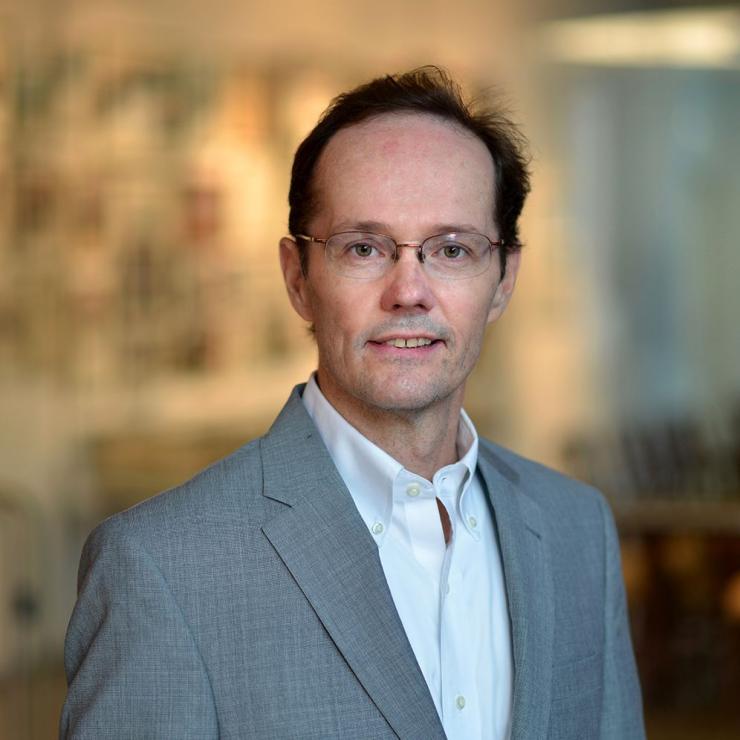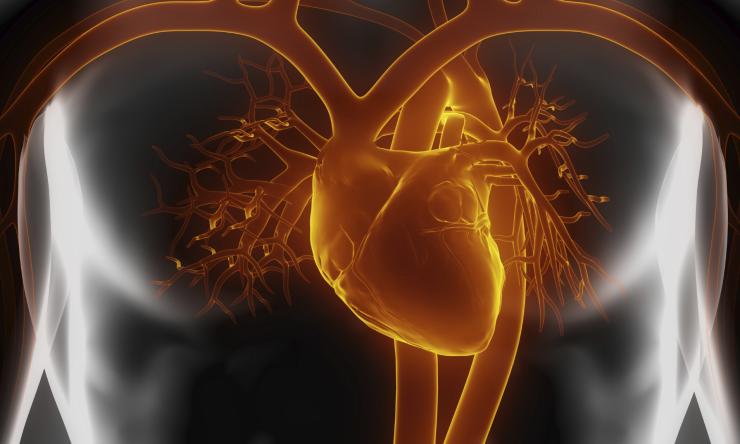Findings suggest possible adult heart tissue regeneration

Injured hearts do not heal themselves. Heart muscle cells, or cardiomyocytes, do not proliferate as much as necessary to replace dead tissue with new, pumping cells. Consequently, most people who had a severe heart attack or other injury to the heart, will develop heart failure, which remains the leading cause of mortality from heart disease. In this study published in the journal Developmental Cell, an international team led by researchers at Baylor College of Medicine and the Texas Heart Institute reports that they have been able to remove the ‘breaks’ that hold back cardiomyocyte proliferation, opening the possibility for treating heart disease by reprograming adult cardiomyocytes to a more fetal cell state.
“Cardiomyocytes are very long-lived cells that are highly specialized to maintain a functional, pumping heart,” said corresponding author Dr. James Martin, professor of molecular physiology and biophysics and Vivian L. Smith Chair in Regenerative Medicine at Baylor College of Medicine. “However, they are so ‘dedicated’ to their job that they do not participate in other cellular activities, such as proliferation.”
Cell proliferation is essential for tissue regeneration, so Martin and his colleagues have been investigating how to manipulate the genetic mechanisms that prevent cardiomyocyte proliferation in order to promote the repair of injured hearts.
The researchers had previously shown that the Hippo pathway stops cardiomyocyte proliferation by inhibiting the activity of the YAP pathway. In this study, the researchers developed a mouse model expressing in adult cardiomyocytes a version of YAP called YAP5SA that is impervious to the inhibitory influence of Hippo.
“We showed that by expressing YAP5SA, we could reprogram these highly specialized adult cardiomyocytes to look more like embryonic cells. The reprogramed cells also can proliferate and the new cells make connections with pre-existing cardiomyocytes,” said Martin, who also is director of the Cardiomyocyte Renewal Lab at the Texas Heart Institute.
Reprograming of adult cardiomyocytes had not been done in live animals before, explains Martin.
“This study shows that it is possible to push those very specialized cells back to a more fetal state by manipulating the right genes,” Martin said. “And this opens possibilities for treating heart disease by reprograming cardiomyocytes.”
Other contributors to this work include Tanner O. Monroe, Matthew C. Hill, Yuka Morikawa, John P. Leach, Todd Heallen, Shuyi Cao, Peter H. L. Krijger, Wouter de Laat, Xander H.T. Wehrens and George G. Rodney. The authors are affiliated with Baylor College of Medicine, the Texas Heart Institute, Oncode Institute, Hubrecht Institute-KNAW and University Medical Center Utrecht, the Netherlands.
This work was supported by Intellectual and Developmental Disability Research Center grant (1U54 HD083092) from Eunice Kennedy Shriver NICHD, Mouse Phenotyping Core at Baylor College of Medicine with funding from NIH (U54 HG006348) and NIH grants (DE 023177, HL 127717, HL 130804, HL 118761, HL 089898, HL 091947, HL 117641, HL 129570, AR 061370 and F31HL136065). Further support was provided by Vivian L. Smith Foundation and MacDonald Research Fund Award 16RDM001, Transatlantic Network of Excellence Award Leducq Foundation Transatlantic Networks of Excellence in Cardiovascular Research 14CVD01: “Defining genomic topology of atrial fibrillation.”










